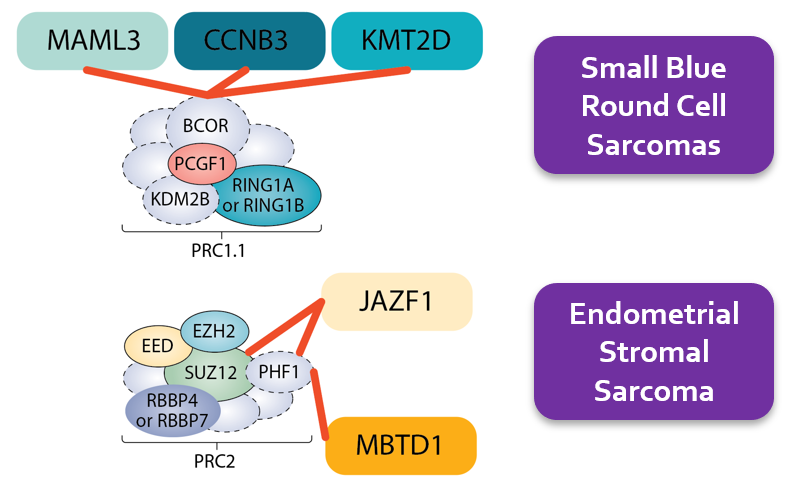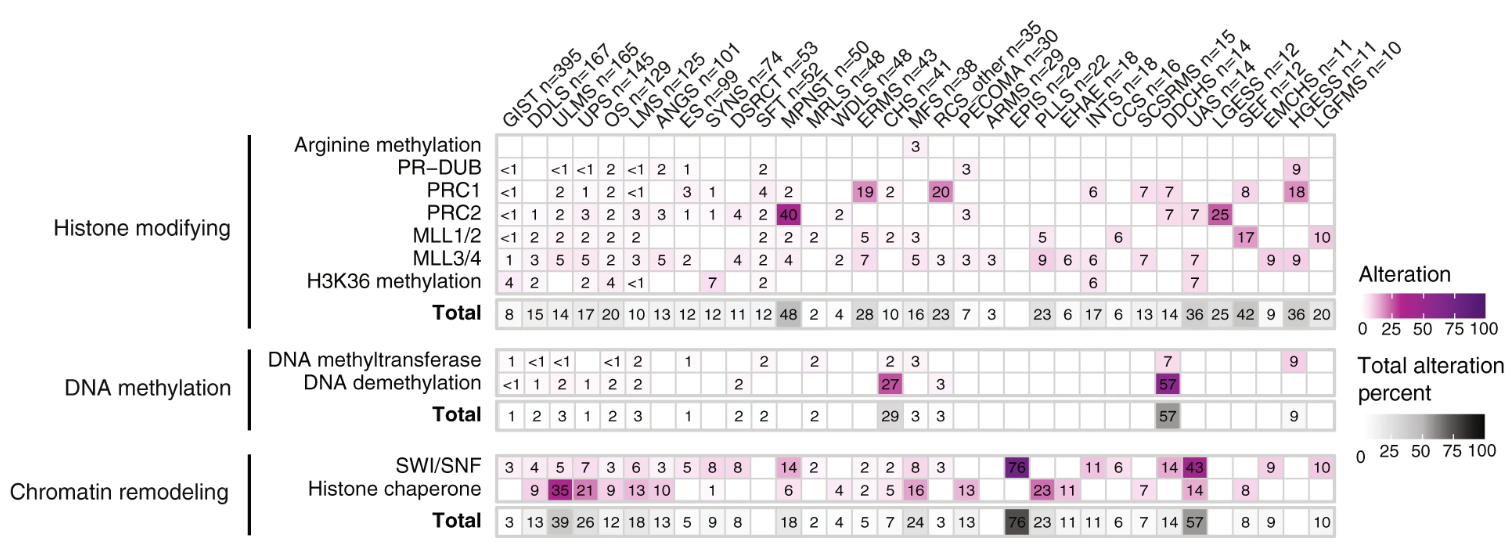

Chromatin, the complex of DNA and associated proteins, is essential for maintaining homeostasis regulating gene expression and other DNA-templated processes such as DNA-damage repair. Loss of this control though cancer-associated genetic alterations in chromatin regulators promotes cancer phenotypes including aberrant gene expression programs and altered differentiation states.
There are myriad recurrent genetic alterations in chromatin regulators in sarcomas, with recurrent alterations in specific sarcoma subtypes. These include translocations resulting in fusions (e.g. BCOR::CCNB3) as well as loss of function (e.g. ATRX and SUZ12). Our goal is to model and study these events to understand how and through what mechanisms chromatin is dysregulated and to identify therapeutic vulnerabilities.

